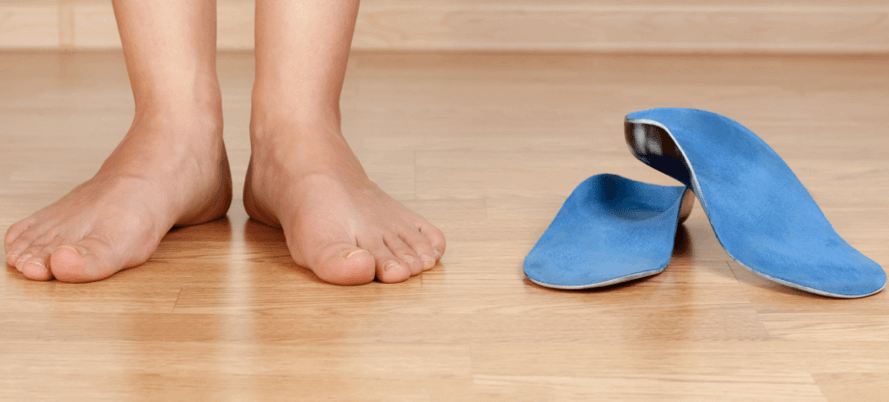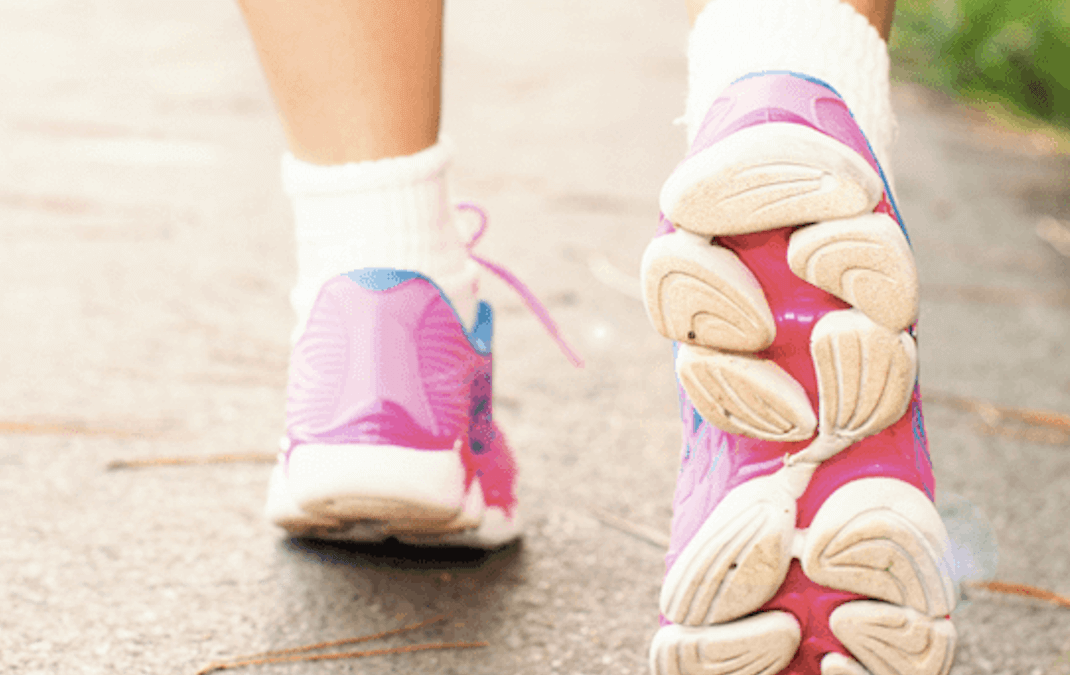Are you considering getting orthotics but you’re not sure if they will work for your needs? We often get asked how we know when our clients need orthotics so we thought we would help answer some of your questions in today’s blog. Unfortunately, a lot of people ignore foot pain and chalk it off as being “normal” or something we all have to just live with. This is not true! If you are experiencing any of the following symptoms, connect with our team to learn more and set up your initial consultation.
Signs You May Need Orthotics
1) Foot Pain
The most obvious sign that you could benefit from a pair of custom orthotics is foot pain. It is not normal to experience pain or swelling during or after doing everyday activities. This includes simple things like standing for a period of time or walking around. Sometimes the mechanics of your feet can lead to your pain like if you have flat feet (meaning little or no arches) or high arches. Flat feet can lead to the inward rolling of your feet which can cause pressure on your arches – orthotics help to relieve this pressure and reduce rolling. On the other hand, high arches can also cause pain and orthotics will help prevent toe issues, calluses, and ankle instability.
2) Heel Pain
Heel pain is also not normal or something you should ignore. In fact, sharp heel pain may be a sign of Plantar Fasciitis, especially if it happens first thing after waking up. Plantar Fasciitis occurs because of inflammation around the thick band of tissue connecting your heel bone to your toes (also known as your Plantar Fascia). This tissue absorbs shock and supports your foot’s arch so orthotics can help relieve your pain by providing this area of your foot with additional support or heel cushioning.
3) Balance Problems
If you are experiencing troubles with your balance it may be a sign that it’s time for some custom orthotics. This is especially important in our elderly patients because they are more prone to collapsed arches which can lead to flat feet-related balance problems. Orthotics can help by improving your foot mechanics and keeping you in good alignment when standing, walking, or running. Your body weight will also be more evenly distributed when you wear orthotics, so you are more stable and less likely to experience discomfort or falls.
4) Uneven Shoe Wear
Another sign that you can check for yourself at home is uneven shoe wear. We encourage you to take a quick look at some of your shoes to see how they are wearing. If your sole or tread is more worn on the inside, you may be experiencing inward rolling (also called pronation) and if they are wearing more on the outside of your shoe, your feet may be rolling outwards (also called supination). Then compare your left and right shoes to see if one sole or tread is more worn than the other – if you think this is the case, your legs may actually be different lengths. Custom orthotics can help address all of these problems and should not be ignored or you risk joint pain and dysfunction.
5) You Are on Your Feet A Lot
Do you have a job that requires you to be on your feet a lot? Or do you have a hobby that means you are standing quite a lot? Standing on your feet for long periods of time can lead to Plantar Fasciitis because you could be experiencing an overuse injury to the Plantar Fascia. A good rule of thumb is standing for more than five hours a day and are feeling pain because of it. Orthotics can help reduce this pain by providing additional support to your Plantar Fascia, and your foot in general, in order to relieve the stress standing for long periods of time can place on your body.

Conditions that Orthotics Can Help With
You also may be experiencing some sort of poor foot mechanics that can cause pain throughout your body. Besides Plantar Fasciitis, there are some common foot ailments that we prescribe orthotics to treat for our patients. Some of those include Achilles Tendonitis, Morton’s Neuroma, Sacroiliac Syndrome, Iliotibial Band Syndrome, Shin Splints, Metarsalgia, and Runner’s Knee. Orthotics may also be necessary if you have had a lower limb injury since these types of injuries can impact the way you walk. Orthotics ensure your feet are supported properly and everything is well aligned to help you heal with minimal pain. Another condition orthotics can help with is diabetic foot complications and we often prescribe custom orthotics to help in the management of these complications since they aid in evenly distributing pressure.
The bottom line: if you are experiencing any sort of pain or discomfort related to your feet, we encourage you to contact your primary care physician or our team to assess your pain. Even if you are on the fence about orthotics, we can help you decide if getting orthotics will benefit you in any way. Do not ignore your pain! Doing so will only reduce the quality of your life and may lead to further complications.
—
We hope this blog helps you better understand some of the reasons we may prescribe orthotics to our patients. If you are wondering if orthotics are right for you and your needs, our physiotherapy teams in Kitchener (Lancaster and Driftwood), Baden, or Waterloo are here to help diagnose your symptoms and get you back on your feet pain-free.
Want more lifestyle advice on how to improve your overall health and wellness? Contact our Livewell Health and Physiotherapy Kitchener (Lancaster and Driftwood), Baden, or Waterloo teams to get more information and book your next appointment. You can also reach out to us by email or social media and one of our team members would be more than happy to answer any of your questions! All of our practitioners have more tips and expert guidance to help improve the overall quality of your life.

